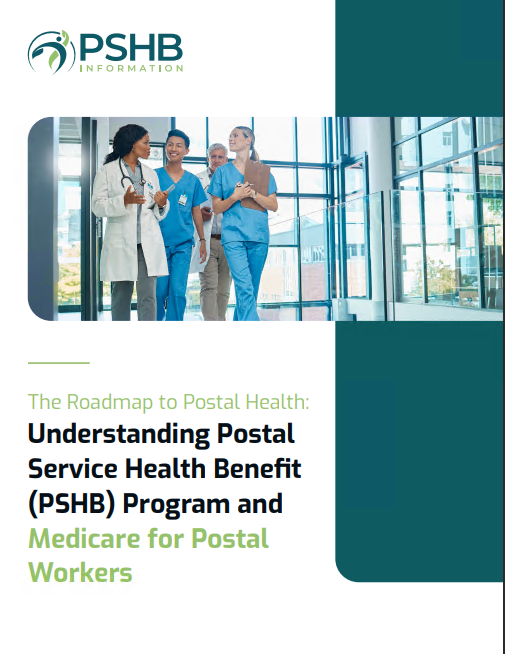Key Takeaways
-
Missing the PSHB Open Season can leave you without essential health coverage for an entire year, unless you experience a Qualifying Life Event (QLE).
-
You won’t be automatically re-enrolled in your FEHB plan if you’re a Postal retiree or employee—you must select a PSHB plan during the Open Season or risk losing your coverage.
The Postal Switch: Why the PSHB Open Season Is a Big Deal
Starting in 2025, all USPS employees and annuitants have to switch from the Federal Employees Health Benefits (FEHB) Program to the new Postal Service Health Benefits (PSHB) Program. This isn’t just an optional upgrade—it’s a full replacement. That means you need to pay attention to the Open Season enrollment window, or you could be stuck without health insurance until the next Open Season.
The Open Season usually runs from November to mid-December every year. For 2025, this is the only time you’ll be able to enroll in a PSHB plan unless you experience a major life change.
What Happens If You Miss It?
It’s not just an inconvenience—it can be a serious problem. Here’s what to expect:
No Auto-Rollover
Your current FEHB plan won’t roll over into PSHB. If you don’t actively choose a new PSHB plan, you’ll simply be without coverage starting January 1, 2025.
No Backdating Allowed
If you miss the deadline, you can’t just call in January and say, “Oops, I forgot.” Enrollment is not retroactive. You’ll have to wait until the next Open Season unless you qualify for a Special Enrollment Period (SEP).
No Safety Net (Unless You Have a QLE)
You only get another shot at enrolling if you have a QLE such as:
-
Marriage or divorce
-
Birth or adoption of a child
-
Loss of other insurance coverage
-
Relocation out of your plan’s service area
Even then, you must act within 60 days of the event to use a Special Enrollment Period.
You’re a Retiree? Pay Even Closer Attention
If you’re already retired from the Postal Service, this is even more critical. You’ll have to actively select a PSHB plan during Open Season to continue your health coverage in 2025. There is no auto-enrollment, and if you miss it, you may face a full year without any government-sponsored health benefits.
Retirees who are eligible for Medicare Part B will also need to be enrolled in it to qualify for most PSHB plans. If you’re not already enrolled in Part B and are required to be, your PSHB coverage could be delayed or denied.
Employees: Don’t Wait Around
If you’re still working, this switch affects you too. The same rules apply—you must pick a PSHB plan during Open Season. If you don’t, you won’t have coverage starting January 1. Even though you’re on active duty with USPS, you don’t get any special leeway.
Are There Any Exceptions?
There are only a few narrow exceptions to the strict enrollment rules:
-
If you are already covered under a family member’s PSHB plan, your coverage can continue.
-
If you’ve retired before January 1, 2025, and are not Medicare-eligible, you may have a one-time deferral option, but only in specific cases.
These exceptions are limited and can be tricky to navigate, so make sure you understand the fine print.
What If You Think You Already Took Care of It?
Let’s say you think you already enrolled. Great—but double-check anyway. Mistakes happen. Log in to your benefits portal or call the HR Shared Services Center to confirm your enrollment. Don’t assume that just because you received a mailer or took no action that everything is set.
You should have received confirmation by the end of Open Season. If you didn’t, act fast—there might still be time to correct errors if they occurred due to administrative issues.
Need Medicare Part B? Timing Matters
One of the major changes with PSHB is the requirement for Medicare-eligible retirees to enroll in Medicare Part B to maintain full access to benefits. This requirement doesn’t apply to everyone, but for many retirees, skipping Part B means:
-
Delayed coverage activation
-
Limited cost-sharing benefits
-
Higher out-of-pocket costs
If you’re eligible and not yet enrolled, the sooner you start the Medicare Part B process, the better. Late enrollment could delay your PSHB benefits or reduce them significantly.
Get Ready for the Next Open Season
If you missed the 2025 Open Season, your best option now is to prepare for the next one in late 2025. Here’s how to avoid missing it again:
-
Mark your calendar: Set reminders in October, November, and December.
-
Update your address: Make sure USPS and OPM have your current contact info.
-
Get Medicare Part B sorted out: If required, apply early.
-
Attend webinars or info sessions: USPS and OPM often offer help sessions during Open Season.
-
Talk to a licensed agent: It’s worth it to get personalized help, especially if your situation isn’t straightforward.
What You’re Really Risking
Missing Open Season can hit hard:
-
No health coverage: You’ll have to pay out-of-pocket for every doctor visit, prescription, and hospital stay.
-
No prescription drug coverage: Unless you’re in Medicare and have other drug coverage, you’re on your own.
-
No federal premium contributions: You lose the generous government share that usually covers about 70% of your premium.
-
Stress and financial strain: Medical bills add up fast, especially if something unexpected happens.
It’s a long wait until the next Open Season rolls around, so it’s not a minor slip—it’s a major setback.
Tips to Keep Your Coverage On Track
Here’s how to make sure you’re good to go:
-
Don’t procrastinate. The deadline sneaks up fast.
-
Check your mail and email. USPS and OPM send notifications, so keep an eye out.
-
Log into your benefits portal. Confirm your enrollment status.
-
Ask for help. Don’t wing it—talk to someone who knows the rules.
Don’t Let the Deadline Define Your Year
Missing the PSHB Open Season deadline could mean a full year without the health coverage you’ve counted on. Whether you’re retired or still working, it’s your responsibility to choose a plan—and no one’s going to do it for you.
If you’re not sure what to do, or if your situation is complicated by Medicare, retirement status, or family coverage, a quick conversation with a licensed agent can clear things up fast.
Talk to a licensed agent listed on this website for professional advice and make sure you’re covered.








